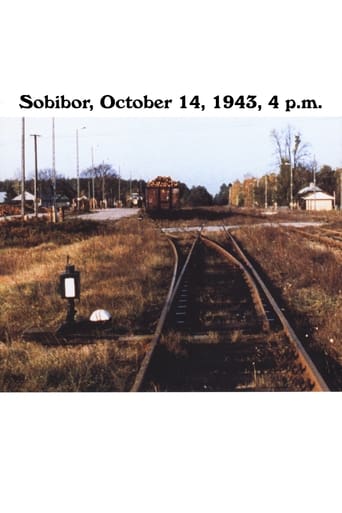Sindre Kaspersen
French professor, film editor and director Claude Lanzmann's fifth documentary feature, premiered in the Out of competition section at the 54th Cannes International Film Festival in 2001, was screened in the Forum section at the 52nd Berlin International Film Festival in 2002, was shot on locations in Belarus and Poland and is a French production which was produced by producer Pascal Caucheteux. It tells the story about a Polish-Jewish man named Yehuda Lerner and his experiences in World War II. Distinctly and subtly directed by French filmmaker Claude Lanzmann, this quietly paced documentary which is narrated by the filmmaker, mostly from the interviewees' point of view and translated by French author, lecturer and researcher Francine Kaufmann, draws a telling portrayal of Jewish ghettos and prisoner of war camps in Minsk, Belarus and a journey which started there. While notable for its atmospheric milieu depictions and distinct cinematography by French cinematographers Caroline Champetier and Dominique Chapuis, this narrative-driven story reflects upon what happened one day at a place called Sobibor in Poland seventy-one years ago. This historical testimony of real events which took place during the Second World War in the early 1940s, which is set in the 21st century in Belarus and Poland and which contains interviews conducted by the French filmmaker in the late 1970s which originally was intended to be used for another work which was released in the mid-1980s, is impelled and reinforced by its cogent narrative structure, rhythmic continuity and the telling scene of gesses. A silently informative documentary feature.
msbsegal
I read the comments made about this movie by some viewers. Except for the first comment, which is to the point, the others are not even worth a remark. In the movie, Mr. Yehuda Lerner, who lives in Israel, speaks in Hebrew, which I am sure the commentator knows not better than Yiddish, although those are both completely different languages, like say German and English! Being French and Israeli, I want to say in the strongest possible terms that Ms. Francine Kauffman, who translates, does a very professional job and gives a fair projection of what Mr. Lerner expresses. His smile is that of a shy and naïf person thrown into a surrealistic situation. The commentators, who have been lucky enough never to spend even 1 day in a concentration camp should be very wise to refrain from making those aberrant and abhorring remarks on the life on the 3rd-Reich-concentration-camps-planet: here in Israel we had a few years ago the famous or infamous "Ivan Demianouk" or Ivan the Red" trial in Jerusalem : this Ivan played one of the savage and beastly part at Sobibor. So many details given by Mr. Lerner support the testimonies of the witnesses called to the bar at this trial. I am not sure but I think that Mr. Lerner was one of the witnesses.In any case, I wanted to thank Mr. Lanzmann for making this movie, without embellishments tricks or useless images. The testimony given by Mr. Lerner is more than enough, and at the end, the reading of all the transports made from all over Europe to the path of death at Sobibor is extremely true and important against all those, who dare deny even the existence of the Holocaust – Shoah.I recommend this testimony to all especially those, who research and study this terrible and dreadful period in the history of mankind.
xenon-22
I think that Lanzmann spoiled a good story: too much text at the beginning of the movie, an endless introduction, a mutilated translation from Yiddish to French... I don't know Yiddish, but you can easily guess that's impossible for the translator to summarize in a sentence two minutes of talk. So what did, in fact, Lerner say, always smiling, even when he was telling horrible things?Lerner's testimony is not convincing either, at least for me. Something in the way he stands in front of the camera makes me wonder if he is telling all the truth. I disagree with the person that spoke about his "modesty": on the contrary I think he is anxious to portray himself as a hero.I felt relieved when the movie finished and naturally I couldn't endure the long, long list of trains that Mr. Lanzmann delightedly recited for five minutes, I guess. A true disappointment.
zombie9874
I understand how important it is to tell this story, but nothing can make up for how boring the execution of this film is. At one point its a 45 min. head shot of the main character who is telling the story. The man constantly restates himself to the point where you the audience member find yourself wishing for a bullet in the head to stop the agony. You would think that with the large amount of film that was shot by the German army during the Third ritch that director Claude Lanzmann could have made this film more visually appealing and interesting than the boring monologue that we are left with.
